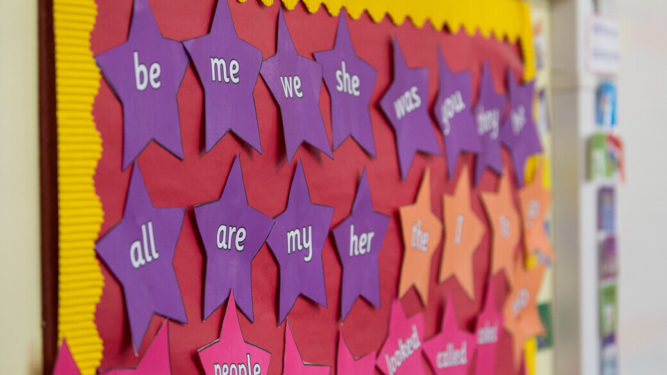Reading comprehensions typically include different types of questions to test a range of comprehension skills. It can be helpful for your child to be able to spot which skill is being tested in each question so that they can answer appropriately. There are some key words and phrases in each that help to identify the kind of question being asked.
Retrieval Questions
These kinds of questions ask the student to retrieve and record key facts and details from the text. They usually require the skill of scanning the text for key words used in the question and putting the answer into a full sentence. These questions typically include a ‘Wh/ H’ word (Who, What, Where, When or How) at the beginning.
Examples:
‘Where were the characters when the disaster struck?’
‘What year was the diary entry written?’
‘How many boats were in the water?’
Vocabulary Questions
Vocabulary questions are looking to see whether the student knows the meaning of a word/ phrase or if they can make an educated guess by putting the word into the context of the sentence. Reading widely and often is one of the best ways to make sure your child has a wide vocabulary and knows plenty of synonyms and their antonyms. Key words: ‘Find a word..’, ‘Explain the meaning of…’
Examples:
‘Find a word in the story that means the opposite of courageous.’
‘Explain what the word “ grumbled” means.’
‘Which word from the text means to make bigger?’
‘Find and copy two adjectives that describe the house’.
‘Find and copy one word which means the same as help’
Inference Questions
These questions are testing the student’s ability to look beneath the surface of the text, to draw conclusions or ‘infer’ meaning. The answers to these questions are not stated obviously in the text and the student must draw on their wider knowledge to answer them. These questions will often ask the student to consider how a character is feeling or think about why something is happening. To answer these kinds of questions is a bit like being a detective and hunting for clues.
Examples:
‘Do you think Heena was scared? Explain how you know, using evidence from the text to support your answer.’
‘How do you think the King would react if the horseman refused to join in with the investigation?’
‘How do you think the girl felt when she discovered the magic key?’
Predicting Questions
These kinds of questions are asking the student to predict what might happen next based on what they have read in the text. Although students are being asked to use their imagination here, they are also being asked to use clues from the text to formulate their answer and stay ‘on topic’. So they might not get a mark for a question that asked them what they thought would happen next in a story of a boy and an elephant travelling through a magical kingdom if they went on to write about the boy meeting aliens in outer space!
Examples:
‘What do you think happened next?’
‘What do you think will happen tomorrow?’
‘What do you think the girl did next?’
Summarising Questions
These questions ask the student to sum up the main points/ events in a paragraph or text. A good way to practise this skill is to use daily reading time with your child as an opportunity to ask them to tell you what happened in the story they just read about in their own words. Some students need quite a bit of practise at using their own words and will often start to read the story again to you, so it may be helpful to ask “What happened at the beginning/ middle / end of the story?’ “What was the problem in the story” “How was the problem solved?” or “Tell me about the main parts of the story”.
Clue words are: ‘sum up’, ‘summarise’, ‘in your own words’.
Examples:
‘Sum up the story in your own words.’
‘Write down in your own words what happened in the final paragraph.’
‘Summarise the events of the text in your own words.’
Author Choice Questions
These questions are looking at the vocabulary, figurative language or interesting punctuation the author has chosen to use and how these words/ phrases add to the meaning of the text. These questions may ask students to find examples of types of words: verbs, adjectives, adverbs etc. and specific literary devices such as alliteration, similes, metaphors and personification so be prepared to know what all of these mean and how to identify examples of them. Questions may also be about different examples of punctuation and why the author has used them.
Examples:
Find two verbs in the story to show different ways that Jackal moved.
At the end of the story, why do you think the author used ‘…’?
Find and copy three adjectives the author uses to describe the Wizard of Oz.
Find and copy an example of alliteration from the text.
Write down an example of personification used in the text.
Can you spot any similes or metaphors? Write down two examples from the text.
Giving an opinion
Some comprehension papers will include a question that asks the student to give an opinion and explain it, so it’s a good idea to get into the habit of asking your child some fun and thoughtful questions and encouraging them to give a reason to back up their answer.
Examples:
How would you feel if you got lost on a school trip? Try and answer in as much detail as you can.
If you had to choose to be any animal, bird or insect, what would you choose and why?
Would you rather always lose or never play?
Write about something you have taught someone else to do. Explain in as much detail what you taught and how it felt to teach it.
Making sense of scrambled sentences!
Another kind of question that can come up in these papers asks students to unscramble a scrambled sentence. This requires making sense of the sentence (sometimes using the text) and using punctuation clues in the sentence to help. Sometimes the question will ask the student to identify different types of words e.g. adverbs, conjunctions, pronouns and proper nouns.
Examples:
Can you unjumble these words to make a sentence?
‘go Sally other not up cows. Did the with mountain the’
‘liked while to Tom school. Hold the to reins riding’
There are many different types of comprehension questions that can come up in comprehension papers. Knowing what they are asking and practising how to answer them can help your child gain more marks in the exam.

